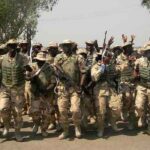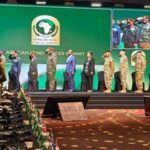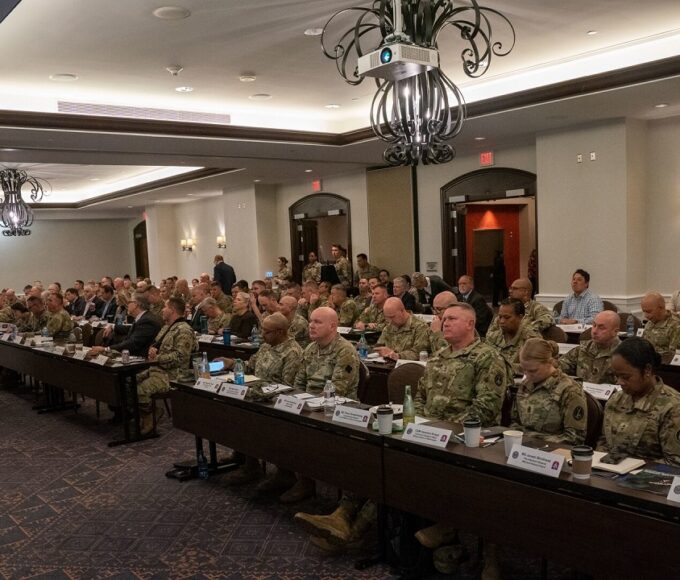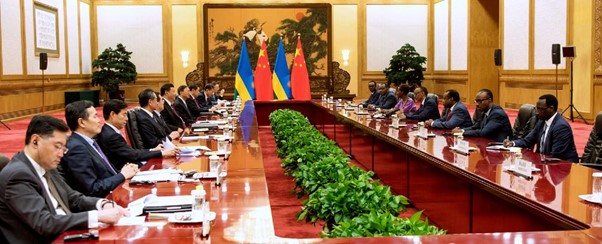Global Defence Shows and Africa’s Participation: A Soft Power Strategy?
Increasingly, African governments are seeing defence shows not just as marketplaces, but as soft power platforms—spaces to frame Africa not only as a security consumer but as a contributor to global peace and innovation.

As international defence expos grow in scale and influence—spanning the Gulf to Europe and Asia—African states are increasingly asserting their presence on these global stages. From IDEX in Abu Dhabi to Eurosatory in Paris and Russia’s ARMY Forum, African delegations are no longer passive attendees. Instead, they are exhibitors, panelists, and dealmakers, showcasing national capability, exploring technology partnerships, and projecting influence.
This article examines how Africa’s participation in global defence shows is shifting from mere observation to strategic soft power engagement. It unpacks key motivations, highlights recent African appearances, and probes whether defence expos are becoming a new theatre for African diplomacy and industrial ambition.
From Buyers to Influencers: Why Africa Is Showing Up
Historically viewed as importers and security aid recipients, African nations have been repositioning their defence narratives. Defence expos offer a dual opportunity:
- Visibility: They enable nations to showcase indigenous defence products, policy reforms, or peacekeeping records.
- Strategic Partnerships: They open doors to bilateral deals, training offers, and technology transfers with state and private defence actors.
Increasingly, African governments are seeing defence shows not just as marketplaces, but as soft power platforms—spaces to frame Africa not only as a security consumer but as a contributor to global peace and innovation.
Recent African Engagements at Key Global Shows (2022–2025)
- IDEX 2023 (UAE)
Nigeria and Algeria co-hosted a regional panel on counter-terrorism equipment standardisation. South Africa’s Denel launched a new UAV platform tailored for desert surveillance. - Eurosatory 2024 (France)
Morocco and Senegal led a showcase of Africa’s peacekeeping innovations, highlighting field medicine and logistics management systems. - Africa Aerospace and Defence (AAD) 2024 (South Africa)
While not “global” in origin, AAD has become a continental bridge for African militaries to engage with major international players. Over 30 African countries exhibited alongside delegations from China, Turkey, and NATO. - ARMY 2025 (Russia)
Despite geopolitical tensions, several African states—most notably Mali, Sudan, and Central African Republic—attended with intent to deepen bilateral technical cooperation on light arms and battlefield communications. - DSEI 2025 (UK)
Ghana, Kenya, and Rwanda joined a Commonwealth Military Innovation Forum held on the sidelines, discussing modular bases and sustainability in defence infrastructure.
Soft Power in Uniform: What Are African States Projecting?
At these shows, African nations are not just showcasing equipment—they are projecting:
- Military professionalism and modernisation pathways
- Commitment to international peacekeeping norms
- Interest in domestic industrial capacity and public-private partnerships
- New doctrines in counterinsurgency, hybrid threats, and climate-security operations
By carefully curating their booths, speeches, and side meetings, countries like Egypt, Ethiopia, and Nigeria are crafting a narrative of strength, stability, and capability.
Challenges in Converting Visibility into Value
While participation is growing, several limitations persist:
- Fragmented Representation: Many African booths appear disconnected from broader national security strategy or defence diplomacy goals.
- Funding Constraints: Smaller defence ministries often rely on donor support or exhibit under regional pavilions with minimal branding.
- Low Local Content: Many African states still display imported technology, missing an opportunity to market indigenous capabilities or startups.
There is also the risk of overexposure without follow-through—making commitments at expos that do not align with procurement plans or national doctrine.
Strategic Recommendations for African Defence Exhibitors
- National Branding at Defence Shows
Just like nations use tourism expos or trade fairs, defence shows should be approached with strategic communication plans that highlight peacekeeping credentials, training academies, and local R&D hubs. - Multi-Stakeholder Delegations
Delegations should include not just military procurement officers, but defence policymakers, academia, and industry leaders to diversify engagements. - Regional Pavilions with Pan-African Themes
ECOWAS, SADC, or the AU could sponsor thematic regional pavilions—e.g., “Africa’s Response to Maritime Security”—to project continental cohesion. - Structured Follow-Up Mechanisms
Deals, MOUs, or knowledge partnerships forged at defence expos should be tracked with annual reviews or incorporated into bilateral defence dialogues.
The Future: Soft Power or Strategic Power?
As Africa expands its footprint on the global defence expo circuit, the question remains: is this merely a cosmetic exercise in visibility, or the foundation of a stronger, more self-reliant security posture? The answer will depend on whether African states treat these platforms as global classrooms for learning, laboratories for partnerships, or podiums for projecting sovereign strength.
Defence Expo Snapshot (2022–2025):
- African countries with active presence at major shows: 25+
- Top African exhibitors: Egypt, South Africa, Nigeria, Algeria, Morocco
- Emerging themes: Indigenous UAVs, peacekeeping logistics, modular barracks, maritime surveillance tech
- Most visited African-themed booth (2024): “Africa in Peacekeeping” at Eurosatory
Recent Posts
Categories
- Air & Aerospace17
- Border Security15
- Civil Security6
- Civil Wars4
- Crisis5
- Cyber Security8
- Defense24
- Diplomacy19
- Entrepreneurship1
- Events5
- Global Security Watch6
- Industry8
- Land & Army9
- Leadership & Training5
- Military Aviation7
- Military History27
- Military Speeches1
- More1
- Naval & Maritime9
- Policies1
- Resources2
- Security12
- Special Forces2
- Systems And Technology9
- Tech6
- Uncategorized6
- UNSC1
- Veterans7
- Women in Defence9
Related Articles
THE ROLE OF DEFENCE CONFERENCES IN GLOBAL PARTNERSHIPS
Defence conferences have emerged as vital platforms for fostering collaboration and understanding...
ByKing Richard Igimoh, Group Editor ALOOctober 9, 2025African Security Think Tanks and Forums: Shaping the Policy Agenda Beyond the Barracks
For decades, security policy across Africa was confined largely to military barracks...
Byadmag_adminJuly 7, 2025African Land Forces Summit: Forging Strategic Ground Power Across the Continent
Where ground forces remain the backbone of African defence, the African Land...
Byadmag_adminJuly 7, 2025Recapping Africa’s Largest Military Exercises: Who Led, Who Learned, What Changed?
Military exercises are no longer mere drills; they are geopolitical statements, readiness...
Byadmag_adminJuly 7, 2025













